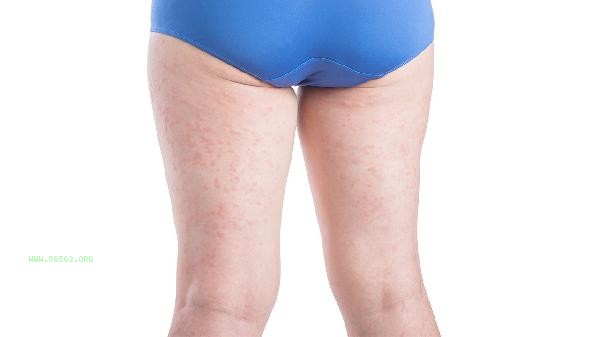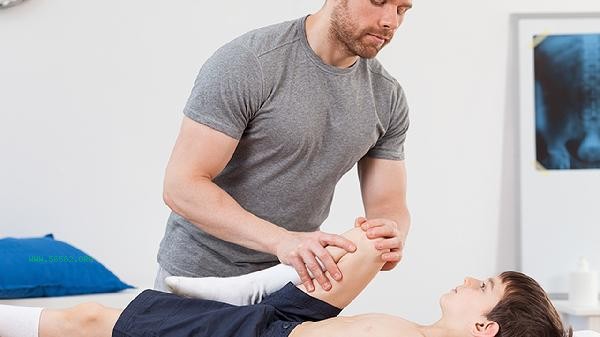It is recommended to seek medical attention from orthopedics or neurology for unexplained muscle soreness in the thighs, which may be related to factors such as muscle strains, lumbar disc herniation, peripheral neuropathy, electrolyte imbalances, and myositis.

1. Orthopedics
Orthopedics mainly investigates problems with the musculoskeletal system. Muscle strain or strain may be caused by excessive exercise or improper posture, manifested as local tenderness and restricted movement. When lumbar disc herniation compresses nerve roots, it may cause radiating thigh pain, often accompanied by lower back pain or numbness in the lower limbs. Osteoporosis or osteoarthritis may also cause muscle discomfort and require a clear diagnosis through X-rays or magnetic resonance imaging.
II. Neurology
Neurology focuses on neurological related causes. Peripheral neuropathy, such as diabetes neuropathy, is characterized by symmetrical numbness and soreness of the distal limb in the early stage. Polymyositis is an autoimmune disease characterized by weakness and soreness in the proximal muscle group, and muscle enzyme spectrum examination can assist in diagnosis. Electrolyte disorders such as hypokalemia may also lead to abnormal muscle contraction pain, which needs to be judged in conjunction with blood biochemical analysis. If there is joint swelling or morning stiffness accompanying rheumatology and immunology, it is necessary to consider seeking medical attention from rheumatology and immunology. Fibromyalgia syndrome is characterized by widespread muscle soreness and tender points, often accompanied by sleep disorders. Connective tissue diseases such as systemic lupus erythematosus may also cause muscle inflammatory reactions and require anti nuclear antibody spectrum testing.
Fourth, Endocrinology
Thyroid dysfunction may cause muscle symptoms. hyperthyroidism patients are prone to muscle weakness and soreness due to metabolic hyperactivity, while hypothyroidism may cause muscle stiffness and spasms. The metabolic disorder caused by uncontrolled diabetes is also a common cause, and the level of glycosylated hemoglobin needs to be monitored.

V. rehabilitation Medicine
Chronic muscle soreness may be considered for rehabilitation assessment. Physical therapists can use motor function tests to determine if there is a mechanical imbalance and develop targeted stretching or strengthening training programs. Ultrasound therapy or low-frequency electrical stimulation can help improve local blood circulation and relieve muscle tension.
It is recommended to record the time, cause, and accompanying symptoms of soreness before seeking medical attention, and avoid vigorous exercise or local massage. Supplementing with magnesium and calcium rich foods such as dark green vegetables and dairy products can help maintain sufficient sleep and aid in muscle repair. If there are systemic symptoms such as progressive muscle weakness or fever, further examinations such as electromyography and muscle biopsy should be promptly completed.









Comments (0)
Leave a Comment
No comments yet
Be the first to share your thoughts!